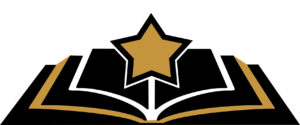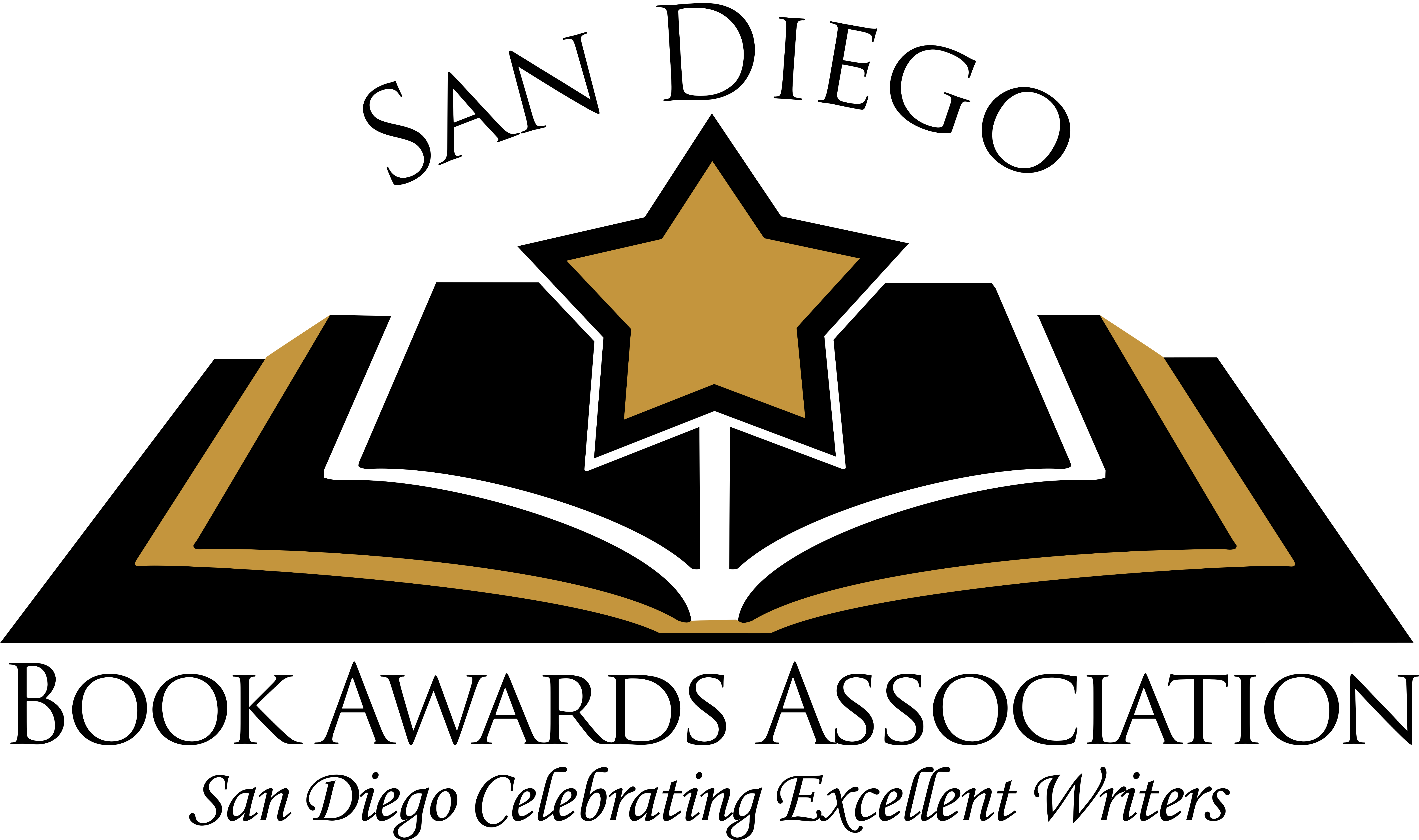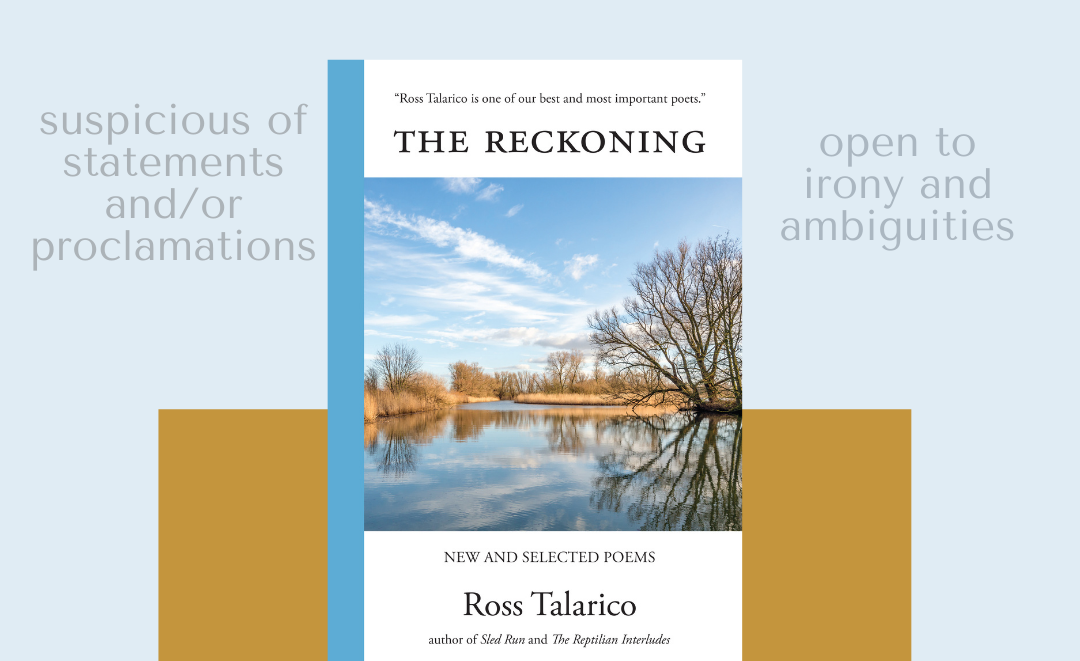
Poetry that reaches into the depths of the human experience is not formulaic.
Pulitzer-nominated poet and winner of the 2020 San Diego Book Award for Best Published
Poetry—Ross Talarico—provides a glimpse into how he pours himself completely onto the page
“to create a lyrical flow to the language, imagery that seems fresh and engaging” and that is
worthy of much recognition.
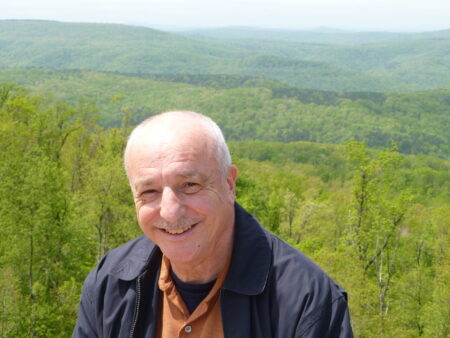
Ross, who writes in multiple genres, shared with the San Diego Book Awards his approach to
writing outstanding poetry, which has garnered him notable distinction in the genre.
Inspired by the Quest for Growth and Accomplishment
SDBAA: What inspired you to write this award-winning book, The Reckoning: New and Selected Poems?
Talarico: Like any poet who has written and published for many years, I wanted to see the
progression of my work, from my early 20’s (I had already published well over 100 poems in the best journals of the country by age 25) to my 30’s when I was considered one of the best poets in America, though my epic, book-length poem, The Reptilian Interludes which was nominated for a Pulitzer, through my popular book, Hearts and Times: The Literature of Memory, poetry narratives based on the oral histories of others ( which was made into a successful play in Chicago), to my most recent work which some critics have claimed as my best work yet.
I wanted to see my growth (hopefully) as a writer, my diversity as a writer, and some evidence to myself that I had earned (several prestigious writing awards) and, gratefully, Best Book of Poetry of the Year by the San Diego Book Awards.
SDBAA: For the aspiring author yearning to write outstanding poetry, can you share your writing process?
Talarico: Even though my style of poetry has changed somewhat, the process is consistent.
As a poet, I let the words speak to me on the page. I try and make it a private affair between me and the page, seeing what I can do to create an invitation to join a literary experience—to create a lyrical flow to the language, imagery that seems fresh and engaging, a conflict of sorts to make the exploration of a human predicament interesting and insightful. I always let the poem lead me, suspicious of statements and/or proclamations, open to irony and ambiguities, which make us explorers (writers!) in the first place.
In the earliest work, it was lyricism or imagery that opened up the poem for me. I was lucky
enough to have a natural poetic voice like the one Neruda describes in his writings. At that time, James Wright was (and to this day is) my major influence—when my professor at Wisconsin, poet Philip Gallo, suggested checking out Wright’s books, Shall We Gather At The River, and The Branch Will Not Break. It literally changed my life.
Ironically, Wright became a mentor of sorts, and as you can see, he has a blurb on the back of
this very book, rest his soul.
My later work became different as far as my approach to creating it. I still looked for that
invitation from the poem itself to join it, extend it, make it interesting to the reader.
For years now—and this book is an excellent example—readers and other poets have
consistently said from the best poets in the country I am one of the most accessible, compared often to Billy Collins. I agree, am flattered, and love his work.
Besides images and lyricism, I like to create provocative ideas or suggestions to begin a poem, such as in the poem Proposal (marriage) in this book, which begins, I heard you murdered
someone/ not long ago/ But that’s okay. Or in a love poem—It dawned on me/ I didn’t love you/ and haven’t for a long time.” Or in a poem about canoeing down a river—You think the roar of the rapids ahead/ is a round of applause/ so go ahead, stand up and take a bow.
And yes, more recognizable ideas and issues have made their way into my poems, but never to the point where I can’t count on my lyrical voice and engaging images to come back to the central question of our human predicament.
Select Your Best Work
SDBAA: What was the hardest part of writing The Reckoning: New and Selected Poems, and how did you overcome it?
Talarico: The hardest part of writing this book was picking out what I thought was my best
work. For a book of poetry, you can see it is a big book. And I still left some good things out.
Fuel Your Drive to Write
SDBAA: One of the biggest challenges for aspiring authors is to finish writing their first draft. What do you do to stay productive and focused?
Talarico: Don’t let thoughts of your career get in your way. It is difficult to publish successfully. I always had the drive to write, no matter what.
Have Faith in Your Work and Evaluate Feedback
SDBAA: What advice can you give current and aspiring authors about writing an excellent book in your genre?
Talarico: There are a lot of pretty bad poets out there that get a lot of attention. Have faith in
your own work and try to find some people who will give you honest feedback. Pick out a few
good poets for models, and don’t let editors (who sometimes don’t even read your work!) get
you down with rejections – most of them know very little about what a good poem is.
Closing Thoughts
Ross Talarico skillfully conveyed how outstanding poetry is the convergence of creative expression, passion, and perseverance to share your story with the world.
In 1985 Ross galvanized the community of Rochester, New York in creative expression— “young and old, poor and privileged, even those who could not read or write but
wanted to tell their stories.” Their work culminated in the publication of a beautiful book of poetry.
What’s holding you back? The world is waiting to hear your voice.
About Ross Talarico
Ross Talarico has been a multi-genre writer for many years, with hundreds of publications,
several books, including poetry, fiction (including a novel Sled Run), and non-fiction. He has
been given several national awards. He was America’s only full-time Writer-in-Residence for an entire city, and his work has been featured on The Today Show, NPR, newspapers and
journals throughout the country. He’s been a professor of writing and literature all his life.
Ross’s work has inspired many—even those who could not read or write— to share their stories.
He still teaches at Palomar College in San Diego. He has 5 children.
About The Reckoning: New and Selected Poems
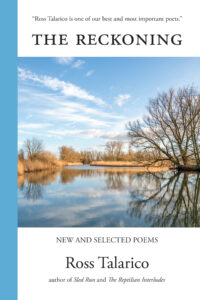
The Reckoning: New and Selected Poems is a masterful compilation of the work of Pulitzer-
nominated poet, Ross Talarico.
Be captivated by:
- Lyrical poetry from Ross’s early and middle career which garnered him national acclaim
- Admired poetry narratives that were commemorated in a stage play and earned Ross a Langston Hughes Poet/Scholar designation from Kansas University
- Sections from Ross’s epic, book-length poem exploring man’s separation from nature
- Thought-provoking new poems exploring human predicament
“Talarico’s true-life narratives inevitably remind you of your own best, half-buried memories.”
—Chicago Tribune
“Ross Talarico is truly a gifted poet.”—James Wright
“Some say Ross Talarico has done the impossible.”—Katie Couric, NBC’s Today Show
About the San Diego Book Awards Association
The San Diego Book Awards Association supports and recognizes published and unpublished authors with our annual competition.
Compete in the 2021 San Diego Book Awards! Submission Window Closes December 31st!
The submissions window for the 2021 San Diego Book Awards competition is from 10/1/20 to 12/31/20. For more information, please visit our submissions page.
If you are interested in participating as a judge, please visit our judging page.
